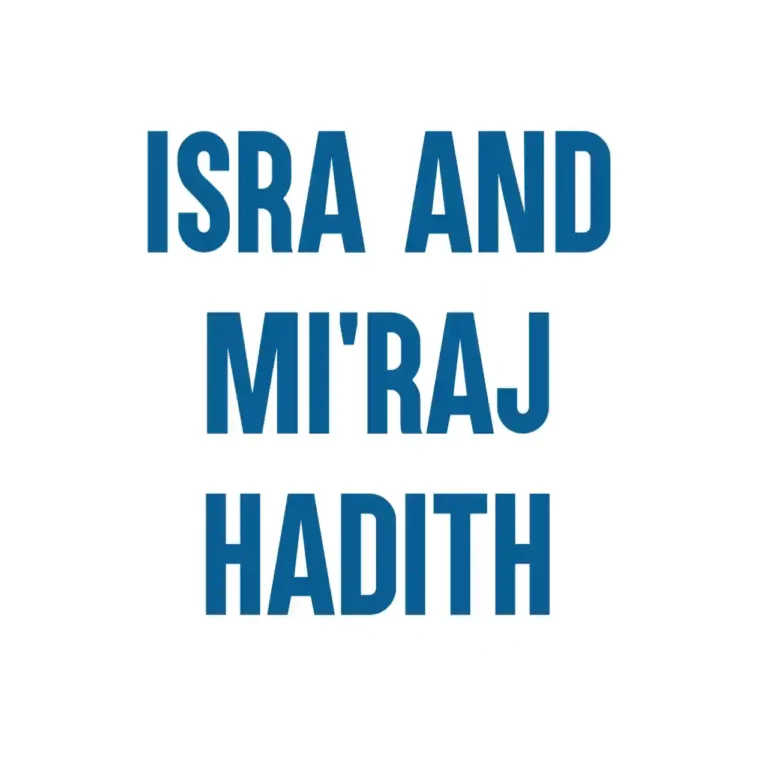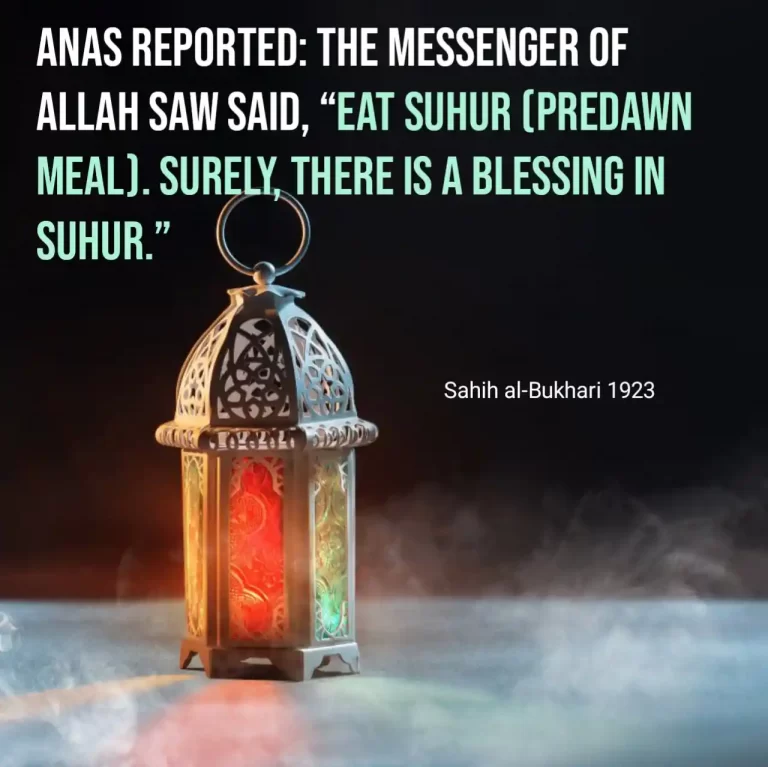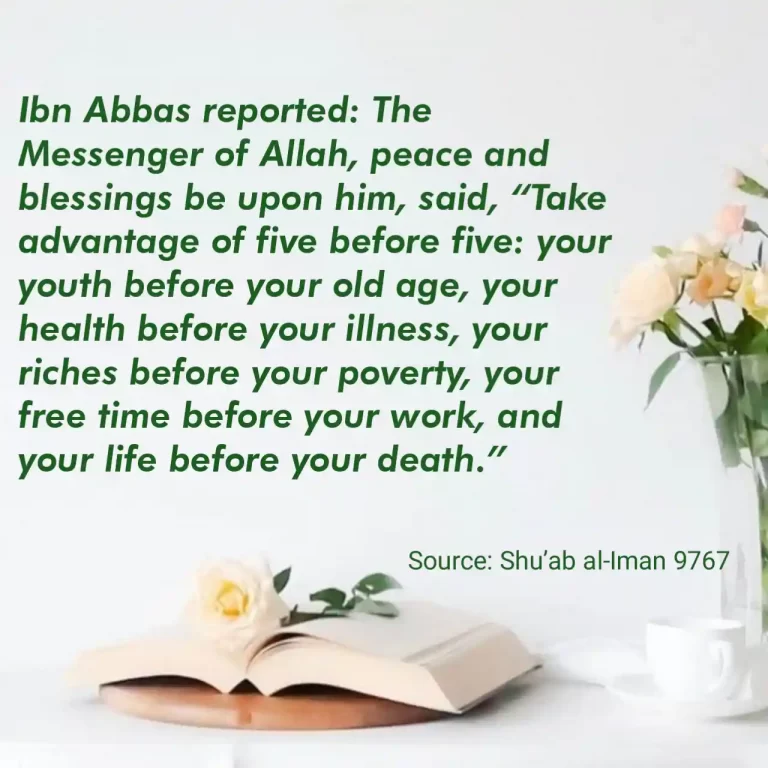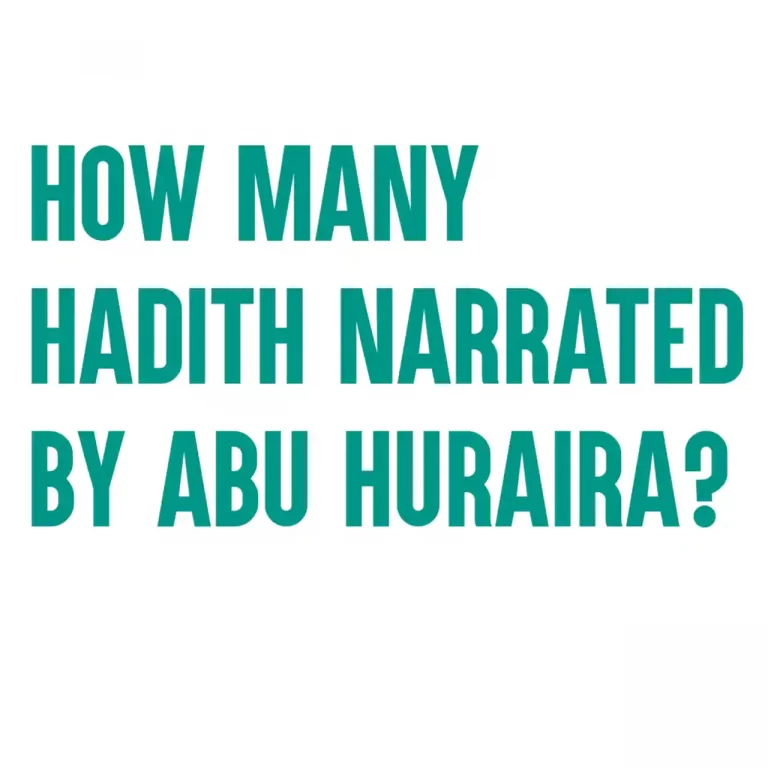5 Hadith About Tongue In Arabic And Meaning
The tongue is a blessing from Allah and a great tool of communication. Let’s look at some hadith about tongue, the don’t’s of the tongue so we can recognize them in our lives and break our bad habits.
Advertisements
Then we will look at how we can use our tongues in the right way so we can make this tiger work for good!
Hadith About Tongue In English
1. Hadith
Narrated Sahl bin Sa`d: Allah’s Messenger (ﷺ) said, “Whoever can guarantee (the chastity of) what is between his two jaw-bones and what is between his two legs (i.e. his tongue and his private parts), I guarantee Paradise for him.”
Source: Sahih al-Bukhari 6474

2. Hadith
It is reported on the authority of Abu Huraira that the Messenger of Allah (ﷺ) observed: He who believes in Allah and the Last Day should either utter good words or better keep silence; and he who believes in Allah and the Last Day should treat his neighbour with kindness and he who believes in Allah and the Last Day should show hospitality to his guest.
Advertisements
Source: Muslim 47
3. Hadith
Narrated Abu Huraira: The Prophet; said, “A slave (of Allah) may utter a word which pleases Allah without giving it much importance, and because of that Allah will raise him to degrees (of reward): a slave (of Allah) may utter a word (carelessly) which displeases Allah without thinking of its gravity and because of that he will be thrown into the Hell-Fire.”
Source: Sahih al-Bukhari 6478
4. Hadith
Abu Huraira reported that he heard Allah’s Messenger (ﷺ) as saying: The servant speaks words for which he is sent down to the Hell-Fire farther than the distance between the east and the west.
Source: Sahih Muslim 2988
Advertisements

5. Hadith
Uqbah bin ‘Amir narrated: “I said: ‘O Messenger of Allah! What is the means to salvation?’ He said: ‘That you control your tongue, suffice yourself your house, and cry over your sins.'”
Source: Jami` at-Tirmidhi 2406
Related Hadith About Salah In English And Arabic
Advertisements
Hadith About Tongue In Arabic
1. Hadith
عَنْ سَهْلِ بْنِ سَعْدٍ، عَنْ رَسُولِ اللَّهِ صلى الله عليه وسلم قَالَ “ مَنْ يَضْمَنْ لِي مَا بَيْنَ لَحْيَيْهِ وَمَا بَيْنَ رِجْلَيْهِ أَضْمَنْ لَهُ الْجَنَّةَ”.
Sahih al-Bukhari 6474

2. Hadith
عَنْ أَبِي هُرَيْرَةَ، عَنْ رَسُولِ اللَّهِ صلى الله عليه وسلم قَالَ “ مَنْ كَانَ يُؤْمِنُ بِاللَّهِ وَالْيَوْمِ الآخِرِ فَلْيَقُلْ خَيْرًا أَوْ لِيَصْمُتْ وَمَنْ كَانَ يُؤْمِنُ بِاللَّهِ وَالْيَوْمِ الآخِرِ فَلْيُكْرِمْ جَارَهُ وَمَنْ كَانَ يُؤْمِنُ بِاللَّهِ وَالْيَوْمِ الآخِرِ فَلْيُكْرِمْ ضَيْفَهُ ” .
Muslim 47
3. Hadith
عَنْ أَبِي هُرَيْرَةَ، عَنِ النَّبِيِّ صلى الله عليه وسلم قَالَ” إِنَّ الْعَبْدَ لَيَتَكَلَّمُ بِالْكَلِمَةِ مِنْ رِضْوَانِ اللَّهِ لاَ يُلْقِي لَهَا بَالاً، يَرْفَعُ اللَّهُ بِهَا دَرَجَاتٍ، وَإِنَّ الْعَبْدَ لَيَتَكَلَّمُ بِالْكَلِمَةِ مِنْ سَخَطِ اللَّهِ لاَ يُلْقِي لَهَا بَالاً يَهْوِي بِهَا فِي جَهَنَّمَ ”.
Sahih al-Bukhari 6478
4. Hadith
عَنْ أَبِي هُرَيْرَةَ، أَنَّهُ سَمِعَ رَسُولَ اللَّهِ صلى الله عليه وسلم يَقُولُ “ إِنَّ الْعَبْدَ لَيَتَكَلَّمُ بِالْكَلِمَةِ يَنْزِلُ بِهَا فِي النَّارِ أَبْعَدَ مَا بَيْنَ الْمَشْرِقِ وَالْمَغْرِبِ ” .
Sahih Muslim 2988
5. Hadith
عَنْ عُقْبَةَ بْنِ عَامِرٍ، قَالَ قُلْتُ يَا رَسُولَ اللَّهِ مَا النَّجَاةُ قَالَ” أَمْسِكْ عَلَيْكَ لِسَانَكَ وَلْيَسَعْكَ بَيْتُكَ وَابْكِ عَلَى خَطِيئَتِكَ”.
Jami` at-Tirmidhi 2406

What Did Prophet Muhammad Say About Tongue?
You should know that every mature, morally responsible individual must safeguard his tongue from all (forms) of talks except that which have worldly or religious benefits.
This statement is taken from the saying of the Prophet SAW: ‘He who believes in Allah and the Last Day must either speak good or remain silent.’
When the two, remaining silent and speaking, are at par, the security of silence is better. That is, one should not speak if one is in doubt of the benefit or otherwise.
In this case, it is better not to talk since silence takes nothing away from you. The one who keeps silent is safe except when it becomes imperative for him to speak, then he should.
For instance, he should not remain quiet if he witnesses an evil; rather, he must speak out to admonish and forbid a malicious act.
However, it is safer for him not to speak if there’s no benefit attached to his speech.
And then know that the saying of the Prophet SAW, ‘He who believes in Allah and the Last Day must either speak good or remain silent.’ is a pointer to the fact that it is obligatory for one to keep quiet if speaking does not bring any good.
This is because the Prophet SAW makes saying what is good a condition for faith in Allah and the Last Day, otherwise one should keep silent.
The hadeeth of Abu Musa al-Ash’ari (may Allah be pleased with him) that the Prophet SAW was asked about the most excellent among the Muslims.
He SAW said, ‘One from whose tongue and hands the other Muslims are secure.’ That is, the one who does not violate the rights of other Muslims.
He does not harm them with his tongue by backbiting, gossiping or abusing them, ‘and his hands,’ by appropriating their wealth and property to himself or assaulting them physically.
Rather he refrains from all these and would not approach people except with that which is good. This is a (true) Muslim.
This encourages refraining from harming people with your tongue and hand. You should restrain your tongue and avoid speaking about the servants of Allah except in good terms.
Likewise, you should restrain your hands from violating their properties and persons. You must be an agent of peace and let people feel safe with you. This is the best of the Muslims.
We beseech Allah to make you and us attain that which He loves and pleases Him.
These hadeeths explain the danger of the tongue, and that it is one of the most dangerous human organs.
In the first hadeeth, the Prophet SAW said, ‘Whosoever gives me a guarantee to safeguard what is between his jaws and what is between his legs, I shall guarantee him Jannah.
What is between the jaws refers to the tongue. Hence, this denotes whoever guards his tongue. He protects his tongue from unlawful statements such as lying, backbiting, spreading calumnies, cheating and others.
The Prophet SAW shall guarantee Paradise for whoever safeguards them; that is, the reward of the one who protects his tongue is the Paradise.
The desire to talk is always present on the tongue, and many people derive pleasure in talking about peoples personality and making jest.
Allah, the Mighty and Sublime -says:
“And when they returned to their people, they would return jesting.”
Surah Al-Mutafifeen 31
You will find out that the most beloved thing to him is to talk about people’s dignity. They are fond of spewing lies and you will realise that this is their best craft.
Lying is one of the major sins, particularly when one tells lies to make people laugh.
The Prophet SAW has said, ‘Woe to him who talks and lies in order to make people laugh. Woe unto him and then woe unto him.’
Also in the fourth hadeeth: ‘A person utters a word thoughtlessly (i.e., without thinking about its being good or bad) and as a result of this, he will fall down into the fire of Hell deeper than the distance between the east and west.
The statement, ‘thoughtlessly’ means that he did not give it consideration before voicing what he heard; ‘And it is enough for a man to be regarded as lying simply for narrating everything he hears.’
You hear him utter a statement which he does not understand, ascertain, know its meaning nor examine its implications.
He will fall down into the hellfire deeper than the distance between the east and the west as a result of that statement.
The distance between the east and the west is immense – halfway around the globe. And a person will fall down into the fire of Hell deeper than that as a result of a statement.
This shows the obligation of being sure of what one says whether you are reporting it from someone or another person is reporting it from you.
You should be certain, exercise caution and avoid hastiness. What compels you to be hasty in making a speech? Be patient until you are certain and the matter becomes clearer to you.
Then you may talk if you see benefit in such speech; otherwise, you should remain silent. ‘He who believes in Allah and the last day should say what is good or remain silent.’
The third hadeeth is about a man who utters a word which is pleasing to Allah.
This statement may be recitation of the Qur’an, Tasbeeh (praising Allah), Takbeer (glorifying Allah), Tahleel (declaring Allah’s Oneness), enjoining what is good, forbidding what is evil, seeking knowledge, making conciliation between people and similar matters.
He utters a word which is pleasing to Allah without attaching any importance to it; that is, he does not think that that would raise him to such status.
The reality is that he would have intended it, comprehended it and attached some importance to it but he would not think that Allah will raise him in ranks in Paradise with it.
In the same vein, a man would utter a word which is displeasing to Allah without considering it of any importance, and for this reason he will sink down into hellfire.
He says it without thinking that it would lead him to such perdition. This happens often. A person would be asked about a sinner or similar individuals, and his response will be, ‘Forget about him; leave him.
By Allah, he does not know his way and Allah cannot forgive him!’ This is a dangerous statement.
A devout worshipper once passed by a sinner and said: ‘By Allah, Allah will not forgive so-and-so.’
Consider how he has restricted the Mercy of Allah which is extensive, in Allah we seek refuge, and swore on behalf of Allah! ‘By Allah, Allah will not forgive so-and- so.’
This devout worshipper was amazed by his deeds, suffered from self-delusion and flaunted his deeds before Allah, as if he has a favour over Allah- Glorified be He and Exalted.
So he swore by Allah that Allah would not forgive a particular person. Allah – the Mighty and Sublime – (then) says: “Who is the one who swears by me that I will not forgive so-and-so?
Indeed, I have forgiven him and rendered vain your deeds.”To whom belongs the dominion and authority?
Allah – the Mighty and Sublime! Who are you to swear by Allah that He would not forgive a particular individual? To Allah belongs the dominion and authority, and no one attempts to dispossess Him of it except that Allah will disgrace him.
He – the Mighty and Sublime – says: “Who is the one who swears by Me that I will not forgive so-and-so? Indeed, I have forgiven him and rendered vain your deed.”
A single statement was responsible for the nullification of his deeds, we ask Allah for safety.
Therefore, be wary of the slips of the tongue. One of such slips is when someone says, for instance: ‘Our neighbor does not observe the Salat, can you advise him, may Allah reward you.’
Then the other replies, ‘That fellow cannot take guidance, he is a transgressor and a sinner!’ I seek refuge with Allah; who has told you that he cannot take guidance?
In whose Hands are the hearts? In the Hands of Allah (of course), as the Prophet SAW has informed us saying, ‘There is no heart except that it is between the Two Fingers among the Fingers of the Most Merciful; and He turns it as He wills.
If He wills, He makes it upright and if He wills He makes it transgress.’This is an accepted fact.
One still finds some thoughts hovering in one’s heart which one knows are from Satan, and one knows that one would have fallen had Allah not made one firm.
Thus, the hearts are in the Hands of Allah, the Exalted. Why then should you say nothing will benefit a particular person?
Why would you say he will not attain guidance? This is forbidden and not permissible. You should call on Allah for guidance without losing hope.
Have we not seen one of the fiercest detractors and worst opponents of this Ummah who later became its second best leader after its Prophet SAW? Who was that person? Umar bin Khattaab.
He was an opponent of the call of Islam and would warn against it and scare people away from it. He was among its fiercest opponents but Allah – the Mighty and Sublime — guided him and he became the second caliph after the Prophet SAW.
So also was Khaalid bin al-Waleed and ‘Ikrimah bin Aboo Jahl. What did they do in (the Battle of) Uhud?
They fell and charged on the Muslims from the rear with other horsemen and the rout was complete. At the end however, they became two of the greatest Muslim commanders.
Therefore, you should not lose hope, my brother. Ask Allah for guidance and firmness, and do not allow your tongue to slip lest you fall into destruction.
We beseech Allah to protect us from sins and guide us to that which is pleasing to Him. Verily, He has power over all things.
Taken from Explanation Of Riyadus Saliheen By Ibn Uthaimeen.
Advertisements







